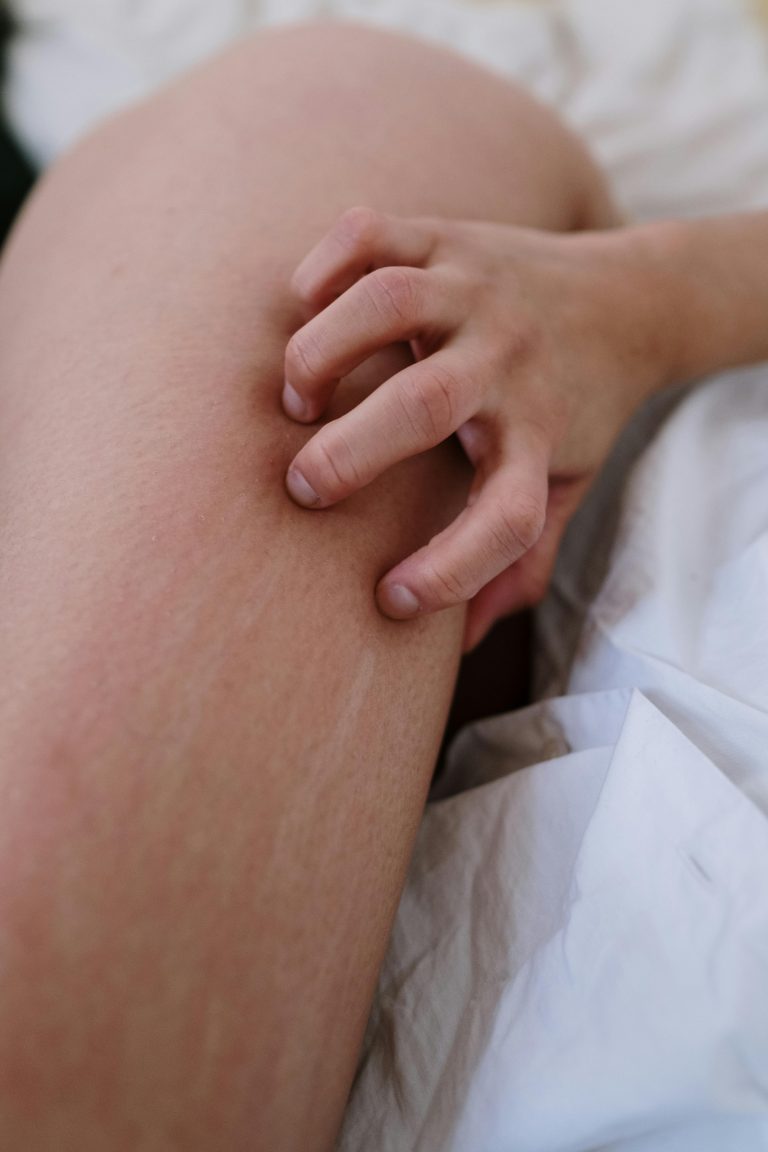Ringworm is a common fungal infection that affects the skin, scalp, feet, and nails. Despite its name, it has nothing to do with worms. It’s caused by a group of fungi known as dermatophytes, which thrive in warm, moist environments. Although ringworm is generally not a serious condition, it can be uncomfortable and, if left untreated, lead to complications.
What is Ringworm?
Ringworm is a fungal infection that causes a red, itchy, circular rash on the skin. It is highly contagious and can spread through direct contact with an infected person or surface, such as clothing, towels, or even gym equipment. Ringworm can also affect pets, further increasing the risk of transmission in households.
Symptoms of Ringworm
The appearance of ringworm varies depending on the area of the body affected. Common symptoms include:
- Itchy, Red Rash: Ringworm typically appears as a circular or oval-shaped rash with raised, scaly borders. The skin inside the circle may appear normal or slightly lighter.
- Blistering or Cracking Skin: The infection can cause the skin to blister or crack, leading to discomfort or pain.
- Hair Loss (in the scalp): If the scalp is affected, you may notice patches of hair loss along with the rash.
- Peeling or Crusting Skin: In some cases, ringworm can cause the skin to peel or form scabs.
Common Types of Ringworm
- Tinea Corporis (Body): Affects the skin on the body, causing the characteristic ring-like appearance.
- Tinea Pedis (Athlete’s Foot): Affects the feet, particularly between the toes, leading to itching, redness, and peeling skin.
- Tinea Capitis (Scalp): Affects the scalp and hair, often resulting in hair loss and dandruff-like flaking.
- Tinea Cruris (Jock Itch): Affects the groin area, leading to itching, redness, and a rash that may spread to the thighs or buttocks.
- Tinea Unguium (Nail Fungal Infection): Affects the nails, causing them to become discolored, thick, and brittle.
How Is Ringworm Spread?
Ringworm is highly contagious. It spreads through:
- Direct Skin-to-Skin Contact: Touching an infected person’s skin or the area around the infected spot.
- Indirect Contact: Sharing personal items such as towels, clothing, or combs that have come into contact with the infection.
- Pets: Animals, especially cats and dogs, can carry ringworm and spread it to humans.
- Contaminated Surfaces: Walking barefoot in public spaces such as gym showers or pools can increase the risk of contracting ringworm.
Treatment of Ringworm
Ringworm can usually be treated with antifungal medications, which are available over the counter or by prescription. Treatment may include:
- Topical Antifungal Creams or Ointments: Apply antifungal creams, sprays, or powders directly to the affected area. Common antifungal agents include clotrimazole, terbinafine, or miconazole.
- Oral Antifungal Medications: In severe cases or if the infection affects large areas of the body or the scalp, oral medications like terbinafine or itraconazole may be prescribed.
- Shampoos for Scalp Infections: Antifungal shampoos containing ketoconazole or selenium sulfide can help treat ringworm of the scalp.
Home Remedies for Ringworm
While antifungal treatments are the most effective way to manage ringworm, some people may choose to supplement their treatment with natural remedies:
- Tea Tree Oil: Known for its antifungal properties, tea tree oil can be applied topically to affected areas. Dilute the oil with a carrier oil like coconut oil before use.
- Apple Cider Vinegar: The acidity of apple cider vinegar may help kill the fungi causing the infection. Apply it diluted to the skin using a cotton ball.
- Aloe Vera: Aloe vera has soothing properties that can help calm irritation and promote healing of the skin.
Preventing Ringworm
Prevention of ringworm involves good hygiene practices and avoiding known risk factors:
- Keep Skin Clean and Dry: Fungi thrive in warm, moist environments. Keeping your skin clean and dry, especially in areas like the groin or between the toes, can help prevent infection.
- Wear Breathable Clothing: Choose clothing made of breathable materials, such as cotton, that allow sweat to evaporate and help keep your skin dry.
- Avoid Sharing Personal Items: Do not share towels, clothes, or grooming tools with others, especially in public spaces.
- Protect Yourself in Public Spaces: Wear sandals or flip-flops in locker rooms, gym showers, and public pools to avoid contact with contaminated surfaces.
- Treat Pets: Ensure pets, especially cats and dogs, are regularly checked for ringworm and treated if necessary.
When to Seek Medical Attention
If you suspect you have ringworm, seek medical attention if:
- The infection does not improve with over-the-counter treatments.
- You have a widespread infection or severe symptoms.
- The infection recurs frequently.
- You experience pain, swelling, or fever associated with the rash.
Managing Ringworm at Igaku
At Igaku, we offer expert consultations for managing ringworm and other fungal infections. Whether you need advice on treatment options or are seeking more information, we are here to help. Our clinics offer in-person consultations, or you can reach us for teleconsultations through WhatsApp for convenience. Don’t wait—let us help you treat and manage your skin health today!
Read our other articles here.
- IGAKUhttps://igaku.co/blog/author/igaku/
- IGAKUhttps://igaku.co/blog/author/igaku/
- IGAKUhttps://igaku.co/blog/author/igaku/
- IGAKUhttps://igaku.co/blog/author/igaku/


